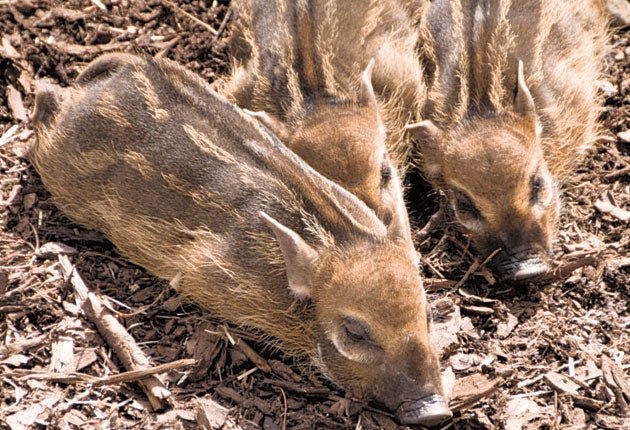Endangered species: Cull to be kind?
When breeding programs are successful, endangered species are saved from extinction. But if too many animals are born, zoos have to take drastic steps

Your support helps us to tell the story
From reproductive rights to climate change to Big Tech, The Independent is on the ground when the story is developing. Whether it's investigating the financials of Elon Musk's pro-Trump PAC or producing our latest documentary, 'The A Word', which shines a light on the American women fighting for reproductive rights, we know how important it is to parse out the facts from the messaging.
At such a critical moment in US history, we need reporters on the ground. Your donation allows us to keep sending journalists to speak to both sides of the story.
The Independent is trusted by Americans across the entire political spectrum. And unlike many other quality news outlets, we choose not to lock Americans out of our reporting and analysis with paywalls. We believe quality journalism should be available to everyone, paid for by those who can afford it.
Your support makes all the difference.A debate was sparked last week when stories emerged that Edinburgh Zoo was planning to cull three of its red river hog piglets because they were "surplus to requirement". While the zoo has since stressed that it has no current plans to euthanise the animals and that the story was inaccurately reported, it did cull two other piglets last August.
While we are familiar with culling animals in the wild, the idea that this also goes on in zoos has proved much more controversial, it seeming at odds with the premise of breeding programmes. So why do zoos ever make the unusual decision of killing their animals?
The European Endangered Species Programme (EEP) is a type of population management for rarer species of animals that are found in zoos. One person is assigned a species and is in charge of producing a plan for the future management of it and co-ordinating its breeding through a process called "recommendation".
Recommendations are made each year on which animals should breed or not breed, and which individual animals should go from one zoo to another or on breeding loans. When faced with more animals, the EEP can recommend that the zoo cull the surplus, as happened last year.
A spokesperson for Edinburgh Zoo explains why animals are allowed to breed even if they don't want any more: "While the red river hog is not currently classed as endangered, it is conservation-dependent due to excessive hunting in its natural habitat in West Central Africa. The category status of any animal, however, always has the potential to worsen in the future. Therefore, all zoos are advised that their animals should remain able to breed, as restricting natural breeding activity or administering contraception can prove detrimental to health and future reproduction. Of course, this often leads to new introductions to the zoo population."
As money can be scarce, rehousing is not always an option. "As a registered charity, the Royal Zoological Society of Scotland has to remain mindful of the resources it has available," the zoo says. "When we are unable to accommodate new additions to our facilities, rehoming is always our top priority, but there are various restrictions involved that make it easier said than done. Animals within the EEP zoo structure must be rehomed within it, or similar bodies within the developed world, to maintain control over their location and welfare. Many facilities within the EEP structure share a similar range of species and, therefore, are not in a position to accommodate more of the same."
However, animal charities have questioned zoo culls and the reasoning behind them. Libby Anderson, a director at animal protection charity OneKind, has said: "Each animal is an individual and I don't think they can possibly justify killing hogs simply because they are deemed surplus to the requirements of a breeding programme."
Population management of animals remains a complex and sensitive subject, but, happily for the three piglets, they are safe for the time being.
Join our commenting forum
Join thought-provoking conversations, follow other Independent readers and see their replies
Comments